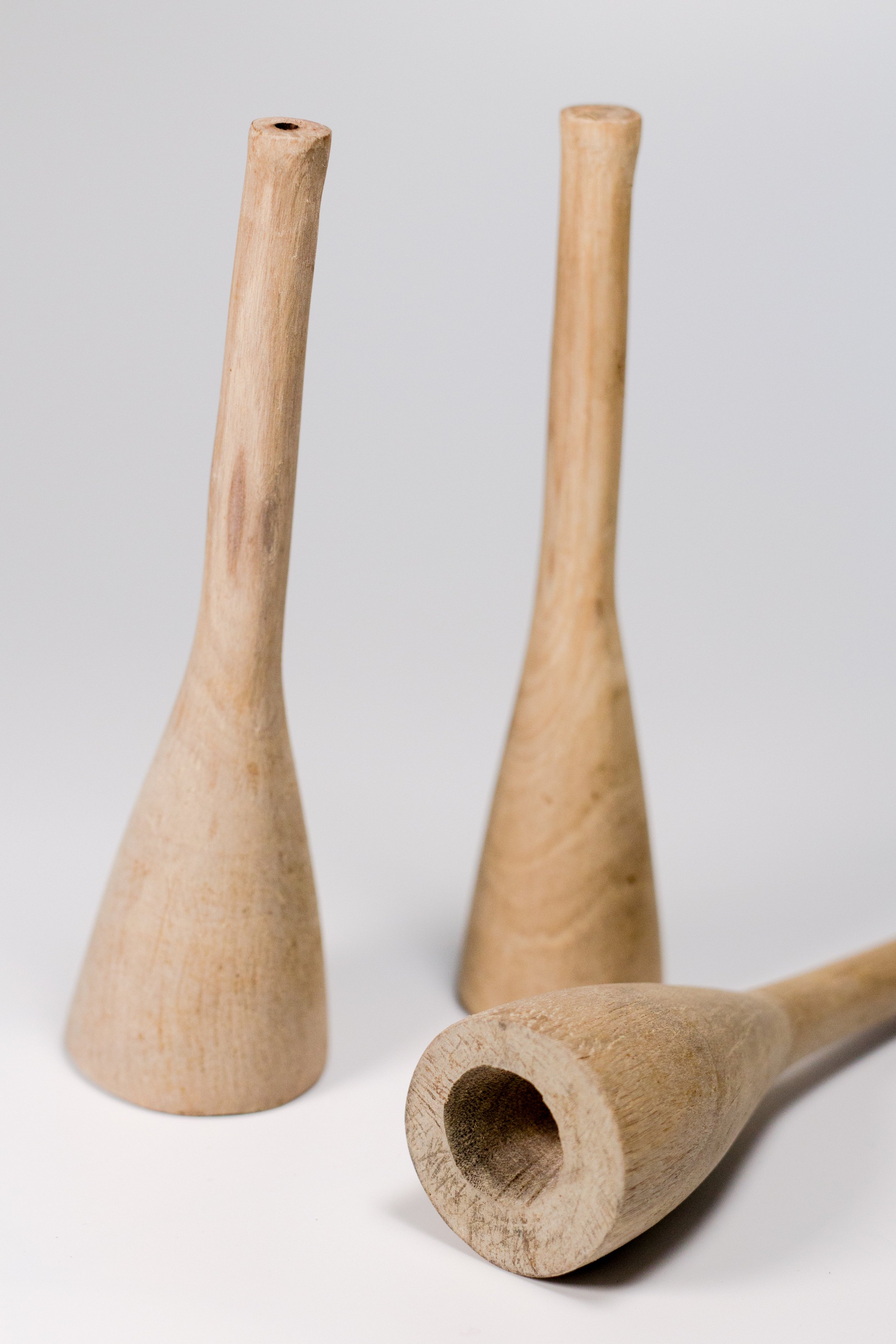Warikôkô Pipe Kayapó
The word WARIKOKO means "pipe" in the Javaé people's language, from whom the Kayapó adhered to the habit of smoke.
In the 20th century, the pipes started being made from mahogany and Pequi trees. Originally known as GOTIDJO - ancient pipe - they come from the Cachimbeiro´s (Cariniana estrellensis) dried fruit.
Source: Kabu Brasil Institute
Materials: Mahogany (Swietenia mahagoni) and Pequi Tree (Caryocar brasiliense)
Dimensions: 7''L x 1.75''W
The word WARIKOKO means "pipe" in the Javaé people's language, from whom the Kayapó adhered to the habit of smoke.
In the 20th century, the pipes started being made from mahogany and Pequi trees. Originally known as GOTIDJO - ancient pipe - they come from the Cachimbeiro´s (Cariniana estrellensis) dried fruit.
Source: Kabu Brasil Institute
Materials: Mahogany (Swietenia mahagoni) and Pequi Tree (Caryocar brasiliense)
Dimensions: 7''L x 1.75''W
The word WARIKOKO means "pipe" in the Javaé people's language, from whom the Kayapó adhered to the habit of smoke.
In the 20th century, the pipes started being made from mahogany and Pequi trees. Originally known as GOTIDJO - ancient pipe - they come from the Cachimbeiro´s (Cariniana estrellensis) dried fruit.
Source: Kabu Brasil Institute
Materials: Mahogany (Swietenia mahagoni) and Pequi Tree (Caryocar brasiliense)
Dimensions: 7''L x 1.75''W
Care Instructions
Indigenous arts are made out of natural materials, and therefore require great tending and care. Please keep the pieces in a dry place and avoid long periods of sun exposure, especially for the art that contains colors in it. Remember that the stalk and fiber from plants tend to soften overtime and gain new shape as we wear them!
Enjoy your indigenous art and contact us if you have any questions!





